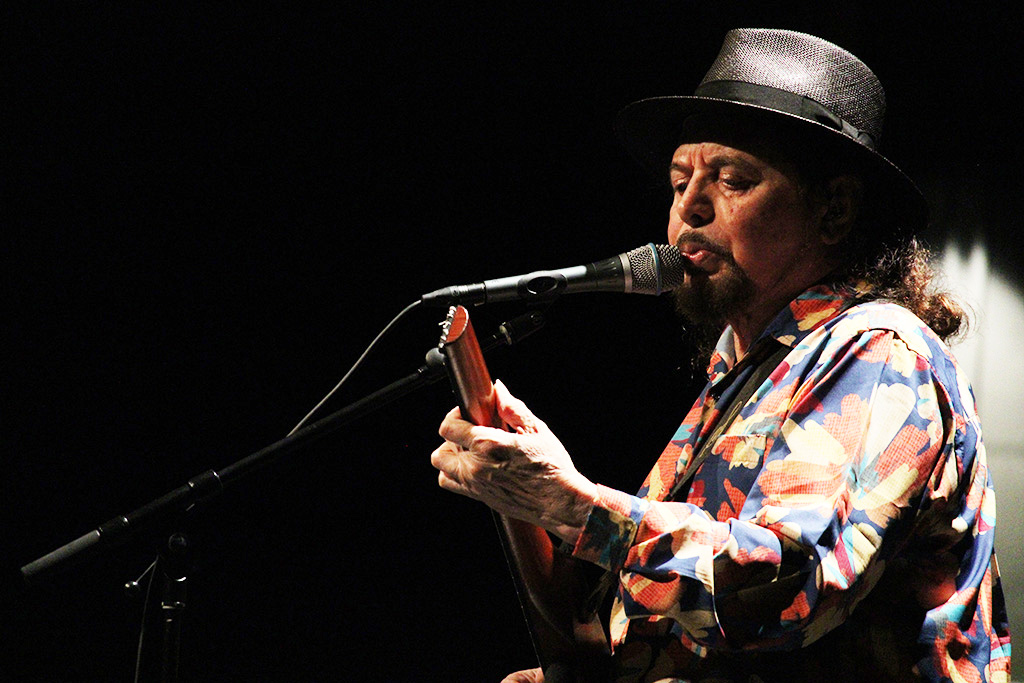What comes to your mind when you hear the word Brazil? Carnivals? Coffee? The statue of Jesus in Rio de Janeiro?
How about the Brazilian handshake? Two pairs of hands and a very good look in the eyes. That’s Brazil.
Maybe the very Brazilian habit of asking one’s name? How many times have you had an hour-long conversation with a person whose name you never bothered to ask?
Brazilians always ask your name. It’s their way of saying, “Yes, you made me care.”
The Brazilian community in Ottawa gathered at the Algonquin Commons Theatre on Sept. 14 to celebrate its heritage and appreciate the music of Geraldo Azevedo — the person who is one of the main faces of Brazilian culture for several generations of his compatriots.
The concert was presented by the Brazil in Canada Association (BRINCA). Its Ottawa branch was created in 2019 and this concert was the biggest event ever organized by this association vowing to answer the very question, “What is Brazil?”
Almost every one of the 321 people who came to the concert grew up with his music. For them, at that point and time, Azevedo was Brazil.
“It brings me back to my childhood,” said Marcia Carvalho, the president of BRINCA. “My dad used to put on this music for us on Sundays when we were getting together as a family.”
People knew many of his songs by heart. Azevedo for Brazil is like Sinatra for North America. Many of us could easily sing along with My Way and New York, New York. Well, every single one of those 321 people, young and old, could sing along with Canção da Despedida, Dia Branco and many other songs that this 78-year-old with long hair and brimmed hat had to offer.
“This guy was my childhood, my teenage years,” said Dr. Fabio Jacobovitz, who was one of the sponsors of the event. “For me, he was one of the best singers in Brazil.”
While some sang, others split into pairs and started slowly swaying to the music between the seats. And it was not the kind of slow dancing high school students would do on their graduation. No, it was for real. It was easy and natural.
It was Brazil.
Sinatra’s biography is very “American,” and Azevedo’s is very “Brazilian.” All the ups and downs of this country aligned with his ups and downs.
In 1964, the coup d’état overthrew the Brazilian government and established a military dictatorship.
In 1969, Azevedo was arrested. He spent 41 days where they tortured him for not being “Brazilian enough” in the opinion of the military junta.
Musicians, artists and journalists were fleeing Brazil, but Azevedo refused to do so.
“To leave was to accept that things wouldn’t get better,” Azevedo said in Portuguese. Then he stopped for a moment. His eyes were open, but they froze. Those were the eyes of a person who remembered something. Something that shall not be said.
“I wanted things to get better,” he said. “They did.”
They did. They really did. Twenty-one years later.
Twenty-one years of censorship, torture and executions.
Yes, today, Azevedo can sing without the fear of prison or torture. Yes, political activists and journalists are no longer executed. Yes, the government does seem more humane.
But Azevedo and his life are good reminders – those 21 years are also Brazil. As much as the coffee, the carnivals and the Jesus of Rio de Janeiro.
That’s all Brazil.


